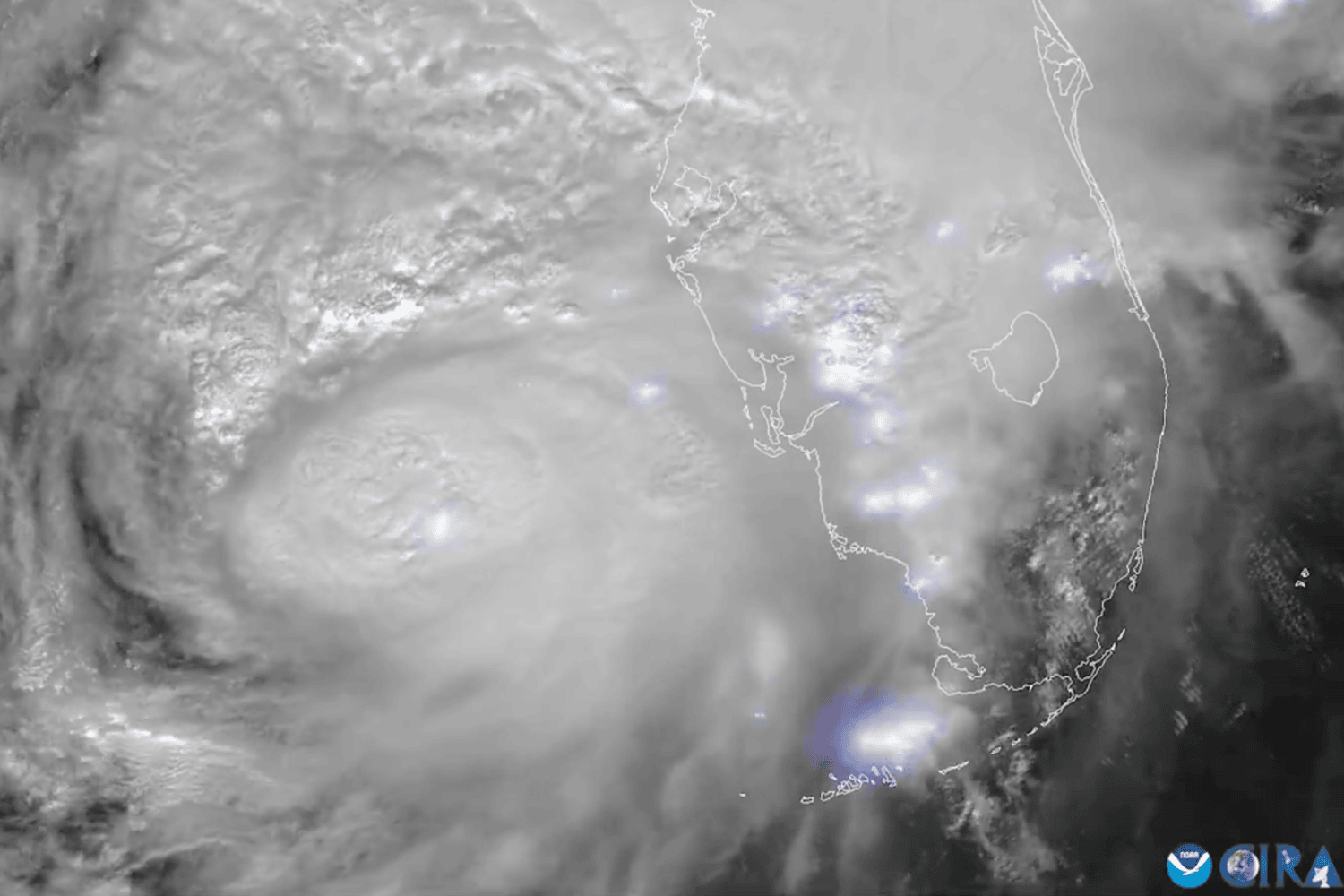I’m interrupting our regularly scheduled programming today to talk about Hurricane Milton, which made landfall last night on Florida’s Gulf Coast as a Category 3 storm and cut a path of destruction across much of the state. The second major hurricane to hit the southeastern U.S. in two weeks, Milton rapidly intensified over the Gulf of Mexico—in large part fueled by an overheated ocean surface.
Most of the time, our focus is on identifying the actions people can take to help curb the heating that drives these catastrophic weather events. But there are also times when our community can shift its focus toward caring for one another in moments that call for recovery and relief. This is one of those moments.
How do we do that? The answer is simple, but it bears repeating: Stay back, send money, keep pushing.
Don’t travel to affected areas
We’ve probably all had the urge to superhero into an affected community. Don’t. You risk creating trouble for first responders or hampering government efforts. There may be opportunities to volunteer your expertise and skills, but FEMA doesn’t want anyone going solo; instead, check out National Voluntary Organizations Active in Disaster (VOAD) to find organizations coordinating volunteer efforts.
Send money, not stuff
Money can’t buy happiness, love, or a sense of humor—but it can buy a whole lotta bandages, water, food, and shelter. Cash donations give organizations the flexibility to buy whatever they need, which is why FEMA advises sending money, not unsolicited goods. Handing the purchasing decision over to the experts also has other benefits, most notably that organizations tend to buy on the ground, which puts money into the local economy. You can browse VOAD member organizations, or consult Charity Navigator for vetted nonprofits. Here a few orgs that focus on specific areas of aid:
- Shelter: Airbnb.org, a nonprofit that operates independently from the home-sharing marketplace, helps disaster survivors get temporary housing. Airbnb can offer up homes for free or at discounted rates, and donations cover the costs of temporary housing.
- Medical assistance: Direct Relief helps communities distribute and replenish medical supplies and essential medicines, so health care providers have what they need to treat anything from trauma to chronic conditions.
- Food & water: World Central Kitchen, founded by chef José Andrés, deploys its Rapid Relief Field Kitchens into disaster areas and can provide thousands of meals a day. The organization is also equipped to truck in fresh water.
- Childcare needs: Save the Children’s Emergency Fund delivers hygiene kits, diapers, wipes, and other essential supplies to families. It also funds long-term recovery efforts like repairing damaged care centers.
Keep pushing for change
No one is immune to the impacts of human-caused warming. Every U.S. state has been hit by a climate-related disaster at some point in the last five years, which includes areas once thought to be havens from extreme weather. There will be more Miltons and more Helenes as temperatures continue to rise.
Which brings us to the last item in our “what can we do” trifecta. Keep pushing, keep voting. I’m not going to veer too far into politics here, because that’s not the point, but I will say this: Make sure you vote for the people who don’t just visit disaster sites, but those who support 1) legislation aimed at keeping disasters from happening and 2) investment in the science and systems that fuel preparedness, prevention, and recovery.
I realize this doomsday-y tone isn’t what you’re used to hearing from us. But fear isn’t something to push aside in moments like this, because fear isn’t necessarily a bad thing. It is the natural, utterly human response to threats to the things we love. And love is what reminds us that we’re in this for more than just ourselves.
It’s like Joe has said every time he’s signed off since one5c began: Take care of yourselves—and each other.

